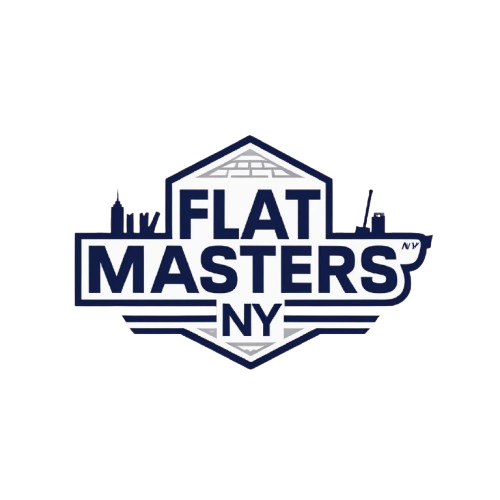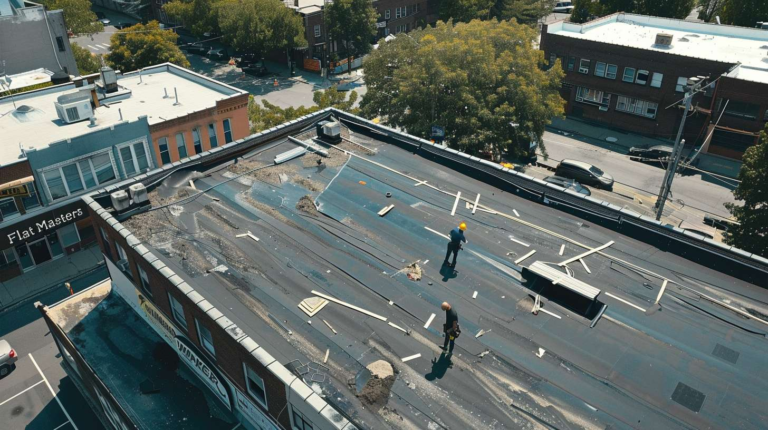Professional Residential Flat Roofing Systems Installation
Look, I've been installing residential flat roofing systems across Queens for over two decades now, and I can tell you straight up - your flat roof is the backbone of your home's protection system. When you're dealing with the unique challenges of New York weather, from those brutal nor'easters to the sweltering summer heat, you need a system that's going to hold up. That's where we come in.
At Flat Masters NY, we've completed over 3,500 residential installations throughout Queens, and I've seen every type of flat roof failure you can imagine. The thing is, most of these failures could've been prevented with the right system and proper installation from the start.
Understanding Modern Residential Flat Roof Systems
So what exactly makes a great residential flat roof system? It's not just about slapping some material on top and calling it a day. These systems are engineered solutions that need to handle water drainage, thermal expansion, wind uplift, and foot traffic - all while maintaining a watertight seal for decades.
The best residential flat roof systems we install include several critical layers. You've got your structural deck, then a vapor barrier, insulation layer, cover board, and finally your membrane system. Each layer has a specific job, and if any one of them fails, your whole roof system is compromised.
Just last month on 48th Avenue in Sunnyside, we replaced a roof where the previous contractor had skipped the cover board entirely. Water had been pooling for years, and the homeowner was dealing with constant leaks. The membrane itself wasn't bad - it was the improper installation that caused the failure.
Top Residential Flat Roofing Materials We Install
EPDM Rubber Systems remain one of our most popular choices for residential applications. This stuff is incredibly durable - we're talking 30+ year lifespans when properly installed. The material itself runs about $3.50-$5.50 per square foot, and with installation, you're looking at $8-$12 per square foot for a complete system.
Here's what I love about EPDM: it handles temperature fluctuations beautifully. In Queens, we can see 100-degree swings from winter to summer, and this material just flexes with it. Plus, if you ever need repairs, it's straightforward to patch.
TPO (Thermoplastic Polyolefin) is gaining serious traction, especially for homeowners who want energy efficiency. The white membrane reflects heat like nobody's business, which can cut your cooling costs significantly during those brutal July heat waves. We're seeing material costs around $4-$7 per square foot, with complete installation running $9-$14 per square foot.
But here's the thing about TPO - the quality varies wildly between manufacturers. We stick with GAF, Carlisle, and Johns Manville because we've seen their performance over time. Some of the cheaper TPO products are failing at 10-12 years, which defeats the whole purpose.
Modified Bitumen still has its place, especially for homes with heavy foot traffic or where you need serious puncture resistance. It's a bit more expensive upfront - typically $10-$16 per square foot installed - but it's bulletproof when done right.
Why Flat Roof Systems for Residential Properties Fail
I can't tell you how many times I've been called to "fix" a flat roof that was doomed from day one. Poor drainage is the number one killer of flat roof systems residential properties. Your roof needs to shed water, not hold it.
The building codes require a minimum 1/4 inch per foot slope, but honestly, I prefer closer to 1/2 inch per foot when possible. We use tapered insulation systems to create proper drainage planes, and every single drain gets a cricket or saddle to direct water flow.
Inadequate insulation is another huge issue. With energy codes getting stricter, we're seeing R-values of 30-38 required for residential flat roofs in New York. But it's not just about meeting code - proper insulation prevents thermal bridging and condensation issues that can rot your deck from the inside out.
The Installation Process: What to Expect
When we start a residential flat roofing project, the first thing we do is a complete structural assessment. Your existing deck needs to handle not just the new roof system, but also potential snow loads up to 50 pounds per square foot here in Queens.
Demo day can be messy, but we've got it down to a science. We protect your landscaping, set up debris chutes, and work in sections to minimize disruption. Most residential flat roof replacements take 3-5 days depending on size and complexity.
Here's where attention to detail matters: every penetration through your roof - vents, HVAC equipment, railings - needs proper flashing details. We use prefabricated boots where possible and hand-fabricate custom flashing from the same material as your membrane.
The insulation installation is critical. We mechanically fasten everything to deck with specific fastener patterns based on your building's wind zone. Queens is in Wind Zone 2, which means we need to design for 90 mph basic wind speeds.
Residential Flat Roof Solutions for Common Queens Challenges
Living near LaGuardia means dealing with jet fuel residue and air pollution that can degrade certain roofing materials faster than normal. We've learned to specify materials and coatings that handle these environmental stresses better.
Salt air from Flushing Bay affects homes in College Point and Whitestone differently than properties further inland. The corrosive environment means we use stainless steel fasteners and more robust flashing details in these areas.
Row houses present unique challenges with party walls and limited access. We've developed installation techniques that work with these constraints while maintaining system integrity.
Maintenance: Keeping Your Investment Protected
Look, even the best residential flat roof system needs regular attention. We recommend inspections twice yearly - spring and fall - plus after any major weather event.
Drainage maintenance is crucial. Those drains and gutters need to stay clear, especially during leaf season. A clogged drain can put thousands of pounds of water weight on your roof structure.
Surface maintenance varies by material. EPDM needs occasional cleaning and UV protectant application. TPO requires minimal maintenance but benefits from annual professional inspection. Modified bitumen systems might need granule touch-ups in high-traffic areas.
Cost Considerations and Value
Residential flat roofing systems represent a significant investment, but when you break it down over the lifespan, it makes sense. A quality system averaging $11 per square foot that lasts 25 years costs about $0.44 per square foot per year. Compare that to repeatedly patching a failing system at $200-500 per service call.
Energy savings factor into the equation too. A properly insulated and reflective roof system can cut HVAC costs by 15-25% annually. On a typical Queens residential property, that's $300-600 per year in savings.
Property value impact is real. A new flat roof system adds about 70% of its cost to home value immediately, and eliminates a major inspection concern for potential buyers.
Working with Flat Masters NY
We've been perfecting residential flat roof solutions in Queens since 2003. Our team knows the local building codes inside and out, understands the unique weather challenges, and maintains relationships with the best material suppliers in the area.
Every project starts with a comprehensive assessment and detailed proposal. We explain exactly what we're doing and why, provide material samples, and give you options that fit your budget and performance requirements.
Our installations come with manufacturer warranties ranging from 15-30 years, plus our own workmanship warranty. We're not going anywhere - we live and work in this community, and our reputation depends on every job we complete.
If you're dealing with flat roof issues or planning a replacement, give us a call at (917) 994-7618. We'll come out, assess your situation honestly, and provide recommendations that make sense for your specific property and budget. That's what 20+ years of experience in Queens residential roofing gets you - straight answers and quality work you can count on.


